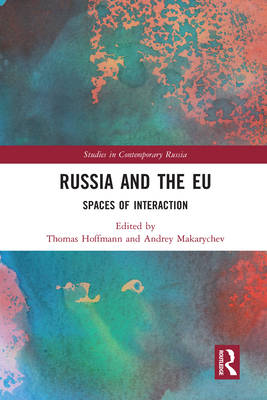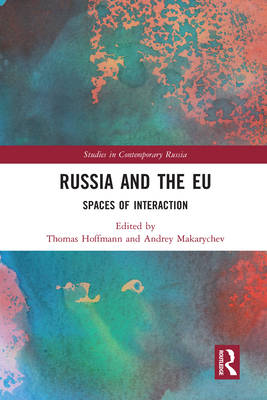
- Afhalen na 1 uur in een winkel met voorraad
- Gratis thuislevering in België vanaf € 30
- Ruim aanbod met 7 miljoen producten
- Afhalen na 1 uur in een winkel met voorraad
- Gratis thuislevering in België vanaf € 30
- Ruim aanbod met 7 miljoen producten
Omschrijving
The annexation of Crimea in 2014 and Russia's support for military insurgency in eastern Ukraine undermined two decades of cooperation between Russia and the EU leaving both sides in a situation of reciprocal economic sanctions and political alienation. What is left of previous positive experiences and mutually beneficial interactions between the two parties? And, what new communication practices and strategies might Russia and Europe use?
Previously coherent and institutionalized spaces of communication and dialogue between Moscow and Brussels have fragmented into relations that, while certainly not cooperative, are also not necessarily adversarial. Exploring these spaces, contributors consider how this indeterminacy makes cooperation problematic, though not impossible, and examine the shrunken, yet still existent, expanse of interaction between Russia and the EU. Analysing to what extent Russian foreign policy philosophy is compatible with European ideas of democracy, and whether Russia might pragmatically profit from the liberal democratic order, the volume also focuses on the practical implementation of these discourses and conceptualizations as policy instruments.
This book is an important resource for researchers in Russian and Soviet Politics, Eastern European Politics and the policy, politics and expansion of the European Union.
Specificaties
Betrokkenen
- Uitgeverij:
Inhoud
- Aantal bladzijden:
- 254
- Taal:
- Engels
- Reeks:
Eigenschappen
- Productcode (EAN):
- 9780367588205
- Verschijningsdatum:
- 30/06/2020
- Uitvoering:
- Paperback
- Formaat:
- Trade paperback (VS)
- Afmetingen:
- 156 mm x 233 mm
- Gewicht:
- 499 g

Alleen bij Standaard Boekhandel
Beoordelingen
We publiceren alleen reviews die voldoen aan de voorwaarden voor reviews. Bekijk onze voorwaarden voor reviews.










